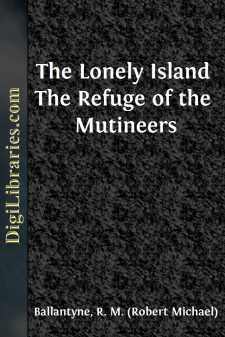Categories
- Antiques & Collectibles 13
- Architecture 36
- Art 48
- Bibles 22
- Biography & Autobiography 815
- Body, Mind & Spirit 144
- Business & Economics 28
- Children's Books 18
- Children's Fiction 14
- Computers 4
- Cooking 94
- Crafts & Hobbies 4
- Drama 346
- Education 58
- Family & Relationships 59
- Fiction 11834
- Games 19
- Gardening 17
- Health & Fitness 34
- History 1378
- House & Home 1
- Humor 147
- Juvenile Fiction 1873
- Juvenile Nonfiction 202
- Language Arts & Disciplines 89
- Law 16
- Literary Collections 686
- Literary Criticism 179
- Mathematics 13
- Medical 41
- Music 40
- Nature 179
- Non-Classifiable 1768
- Performing Arts 7
- Periodicals 1453
- Philosophy 65
- Photography 2
- Poetry 896
- Political Science 203
- Psychology 44
- Reference 154
- Religion 515
- Science 126
- Self-Help 85
- Social Science 83
- Sports & Recreation 34
- Study Aids 3
- Technology & Engineering 59
- Transportation 23
- Travel 463
- True Crime 29
Our website is made possible by displaying online advertisements to our visitors.
Please consider supporting us by disabling your ad blocker.
The Lonely Island The Refuge of the Mutineers
Categories:
Description:
Excerpt
The Refuge of the Mutineers.
The Mutiny.
On a profoundly calm and most beautiful evening towards the end of the last century, a ship lay becalmed on the fair bosom of the Pacific Ocean.
Although there was nothing piratical in the aspect of the ship—if we except her guns—a few of the men who formed her crew might have been easily mistaken for roving buccaneers. There was a certain swagger in the gait of some, and a sulky defiance on the brow of others, which told powerfully of discontent from some cause or other, and suggested the idea that the peaceful aspect of the sleeping sea was by no means reflected in the breasts of the men. They were all British seamen, but displayed at that time none of the well-known hearty off-hand rollicking characteristics of the Jack-tar.
It is natural for man to rejoice in sunshine. His sympathy with cats in this respect is profound and universal. Not less deep and wide is his discord with the moles and bats. Nevertheless, there was scarcely a man on board of that ship on the evening in question who vouchsafed even a passing glance at a sunset which was marked by unwonted splendour. The vessel slowly rose and sank on a scarce perceptible ocean-swell in the centre of a great circular field of liquid glass, on whose undulations the sun gleamed in dazzling flashes, and in whose depths were reflected the fantastic forms, snowy lights, and pearly shadows of cloudland. In ordinary circumstances such an evening might have raised the thoughts of ordinary men to their Creator, but the circumstances of the men on board of that vessel were not ordinary—very much the reverse.
“No, Bill McCoy,” muttered one of the sailors, who sat on the breach of a gun near the forecastle, “I’ve bin flogged twice for merely growlin’, which is an Englishman’s birthright, an’ I won’t stand it no longer. A pretty pass things has come to when a man mayn’t growl without tastin’ the cat; but if Captain Bligh won’t let me growl, I’ll treat him to a roar that’ll make him cock his ears an’ wink six times without speakin’.”
The sailor who said this, Matthew Quintal by name, was a short, thick-set young man of twenty-one or thereabouts, with a forbidding aspect and a savage expression of face, which was intensified at the moment by thoughts of recent wrongs. Bill McCoy, to whom he said it, was much the same in size and appearance, but a few years older, and with a cynical expression of countenance.
“Whether you growl or roar, Matt,” said McCoy, with a low-toned laugh, “I’d advise you to do it in the minor key, else the Captain will give you another taste of the cat. He’s awful savage just now. You should have heard him abusin’ the officers this afternoon about his cocoa-nuts.”
“So I should,” returned Quintal. “As ill luck would have it, I was below at the time. They say he was pretty hard on Mr Christian.”
“Hard on him! I should think he was,” rejoined McCoy. “Why, if Mr Christian had been one of the worst men in the ship instead of the best officer, the Cap’n could not have abused him worse....












